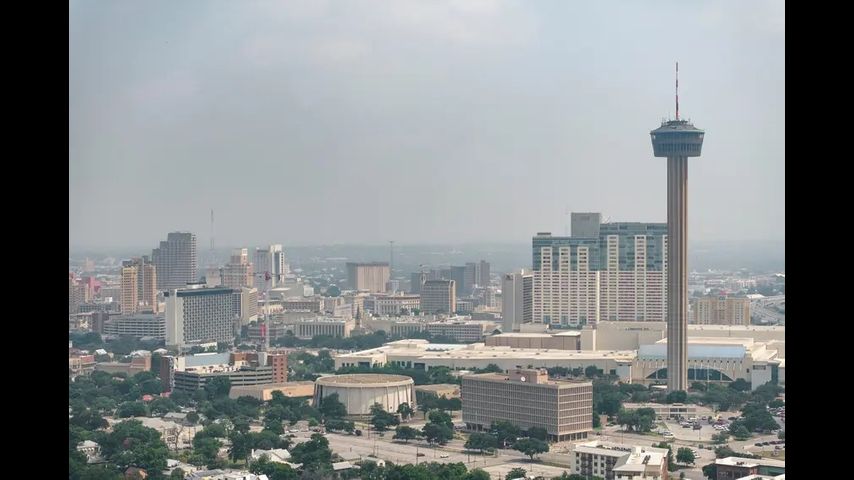Appeals court upholds Texas law limiting cities' enforcement of local ordinances
"Appeals court upholds Texas law limiting cities' enforcement of local ordinances" was first published by The Texas Tribune, a nonprofit, nonpartisan media organization that informs Texans — and engages with them — about public policy, politics, government and statewide issues.
Sign up for The Brief, The Texas Tribune’s daily newsletter that keeps readers up to speed on the most essential Texas news.
Two years after a district court declared that a new state law diluting the policy-making power of blue urban areas was unconstitutional, an appeals court on Friday overruled that decision.
Texas lawmakers in 2023 passed House Bill 2127, dubbed the “Death Star” bill by opponents, which aims to overturn cities’ progressive policies and prevent them from enacting future ordinances that aren’t aligned with broad swaths of state law.
The law prevents cities and counties from creating local ordinances that overstep state laws, such as those passed in Dallas and Austin mandating water breaks for construction workers.
The bill, long sought by Gov. Greg Abbott, marks Texas Republicans’ biggest attempt to undercut the power of the state’s largest metropolitan areas, home to the most Democratic-leaning constituents and leaders.
A month after the bill passed, Houston, later joined by San Antonio and El Paso, sued the state to block the new law, arguing that it deprived elected officials of the power to enact local ordinances on a broad range of issues, such as noise regulations and mask mandates. They also were concerned that the law made it so difficult for local leaders to self-govern that it would push them to propose fewer policy changes.
“What this means is that cities like the city of Houston cannot pass ordinances in these areas unless the state of Texas explicitly gives us permission to do so,” late Houston Mayor Sylvester Turner said in 2023. “That is a total reversal from the way things have been in this state for more than a century.”
A Travis County judge ruled in August 2023 that the law was unconstitutional, but on Friday the Third Court of Appeals overturned that decision.
In its ruling, the appeals court said it agrees with the state largely for two reasons: the cities failed to point to "sufficient concreteness” of how the bill would hurt them, and made a weak case for how the state is to blame for their concerns.
The San Antonio city attorney’s office, however, noted that the court dismissed the case because “cities don’t have standing to challenge” the law because “at this point, there have been no challenges to any of our ordinances under this statute.”
Texas Republicans and business lobbyists argued that the law works to untangle a confusing patchwork of local regulations that burden businesses and slow economic growth. After the bill passed, Abbott said the law prevents cities from being “able to micromanage businesses” which are “especially driving up the costs for local businesses.”
“We are going to have one regulatory regime across the entire state on massive subject areas that will make the cost of business even lower, the ease of business even better,” Abbott later added.
Earlier this year, lawmakers failed to pass Senate Bill 2858, which sought to add teeth to the 2023 law by giving the Texas attorney general the power to sue cities and counties for adopting local rules overstepping state laws.
The San Antonio city attorney’s office said it is in the process of reviewing legal options and is coordinating with Houston and El Paso to plan out next steps.
“While this decision dismissed the current case, it doesn’t prevent us from raising these constitutional issues again in the future if a specific challenge arises under HB 2127,” the office said.
Joshua Fechter contributed to this report.
The lineup for The Texas Tribune Festival continues to grow! Be there when all-star leaders, innovators and newsmakers take the stage in downtown Austin, Nov. 13–15. The newest additions include comedian, actor and writer John Mulaney; Dallas mayor Eric Johnson; U.S. Sen. Amy Klobuchar, D-Minnesota; New York Media Editor-at-Large Kara Swisher; and U.S. Rep. Veronica Escobar, D-El Paso. Get your tickets today!
TribFest 2025 is presented by JPMorganChase.
This article originally appeared in The Texas Tribune at https://www.texastribune.org/2025/07/18/texas-legislature-death-star-law-city-ordinances-limits/.
The Texas Tribune is a member-supported, nonpartisan newsroom informing and engaging Texans on state politics and policy. Learn more at texastribune.org.





